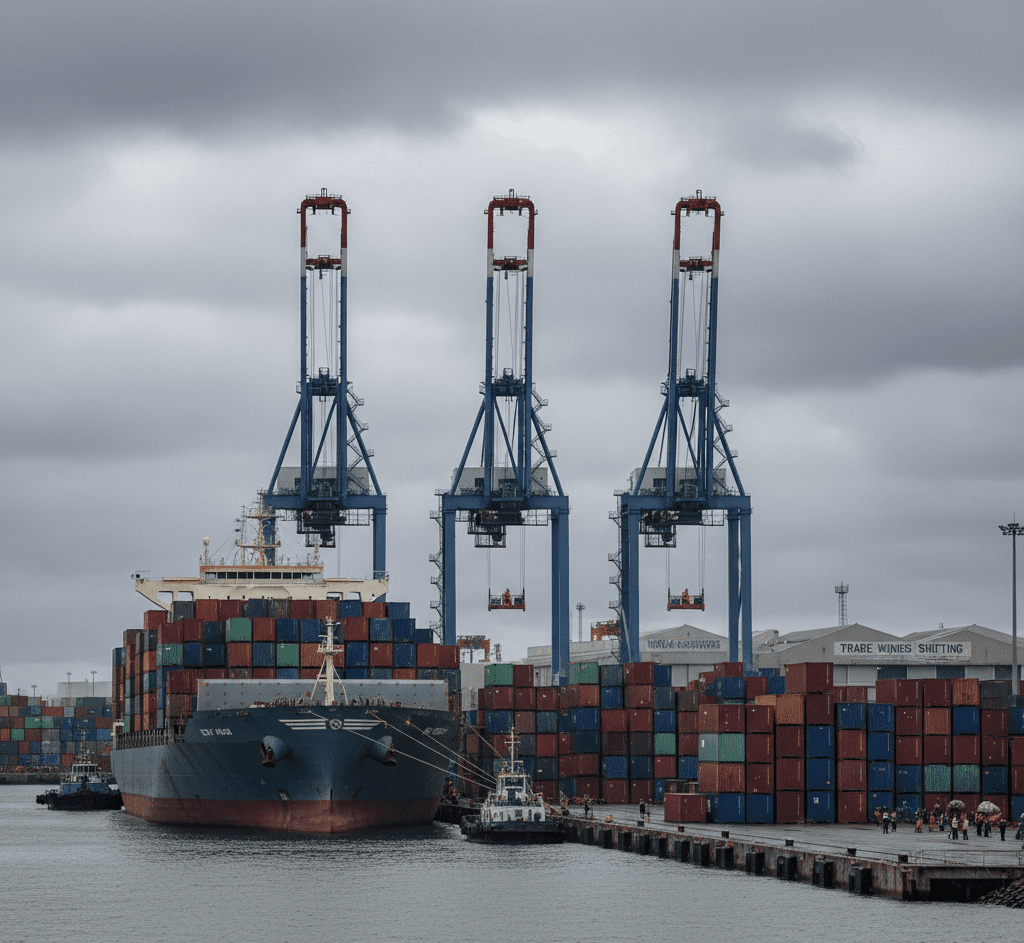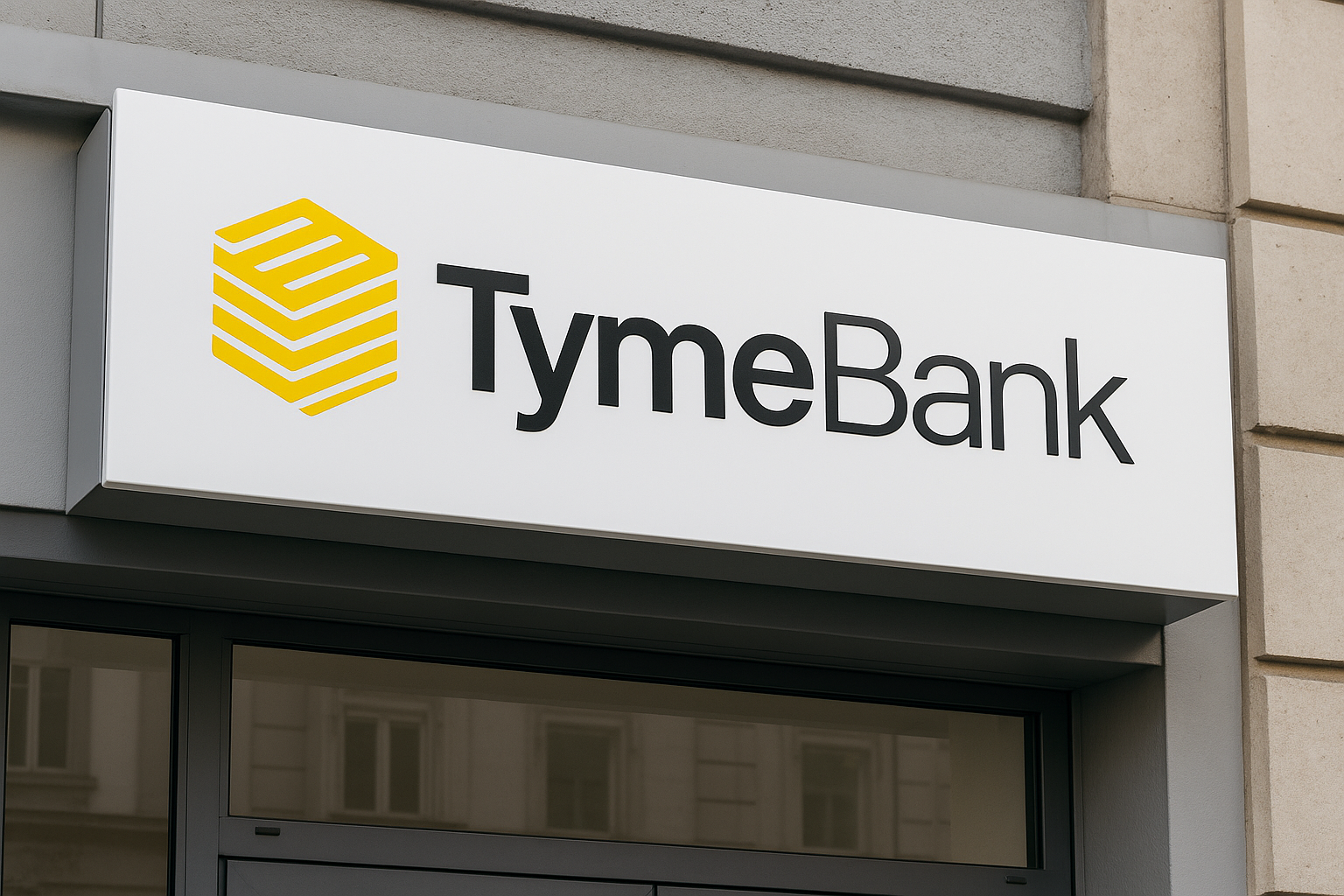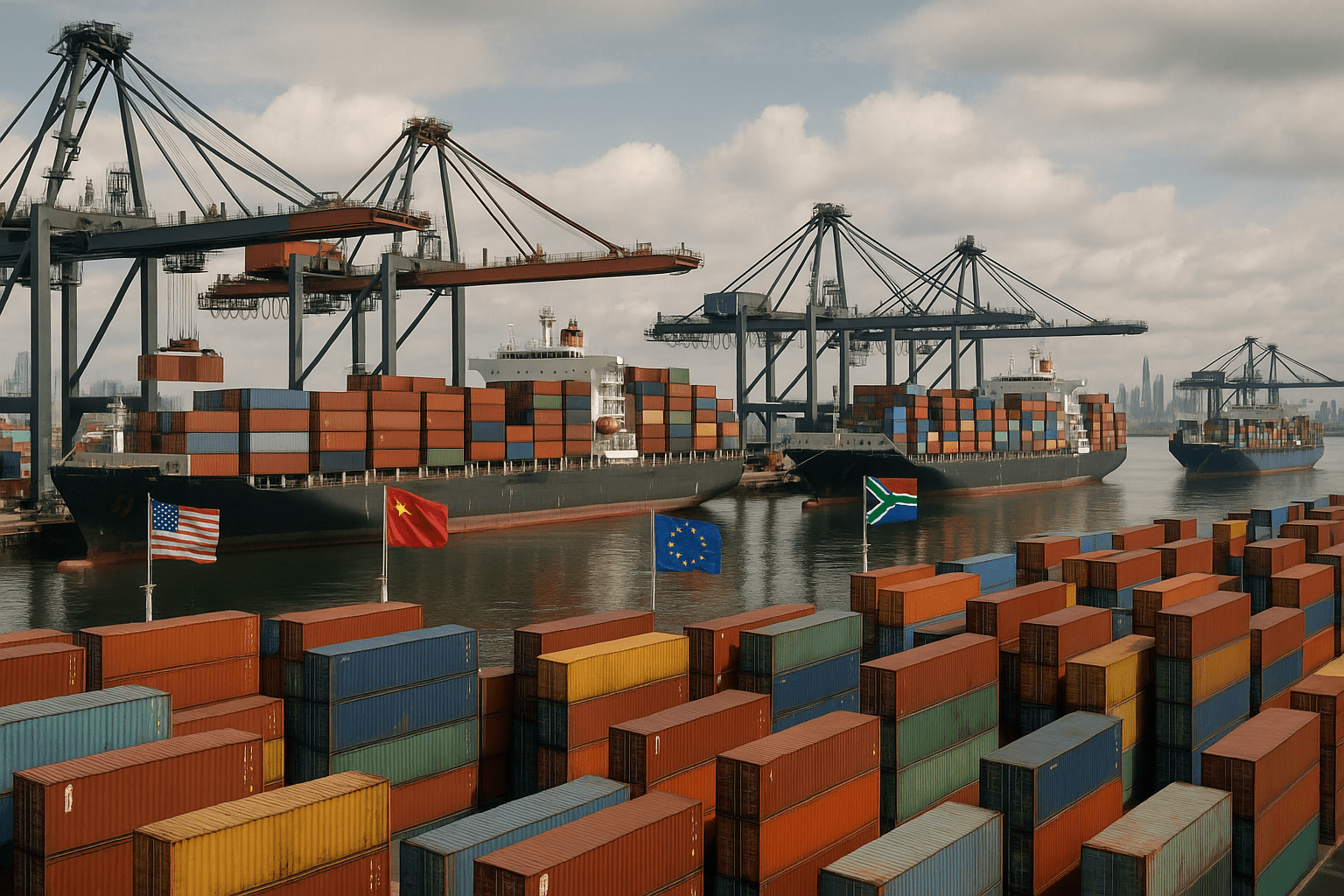The Hidden Cost of Corruption: How It’s Bleeding South Africa’s Economy and Businesses Dry

The Hidden Cost of Corruption
Corruption in South Africa is not just a political issue — it is an economic cancer. Every year, billions of rands are siphoned from the national budget, productivity stalls, investor confidence dips, and businesses are left to navigate a distorted playing field. From load shedding tied to Eskom procurement fraud to inflated infrastructure contracts, corruption has a ripple effect that undermines both macroeconomic stability and daily business operations.
But how deep does the rot go? And how can honest South African enterprises survive, compete, and grow in this environment?
Corruption by the Numbers in SA (2024)
| Metric | Value |
|---|---|
| Estimated Annual Cost of Corruption | R250–R400 billion |
| Percentage of GDP lost to corruption | ~4% |
| Public Procurement Lost to Fraud (Est.) | 30–35% |
| Decline in Business Confidence Index (2020–2024) | -27% |
| Companies impacted by tender fraud | 3 in 5 |
| Youth Unemployment Rate (Q1 2025) | 44.7% |
Sources: Corruption Watch, Stats SA, Transparency International, Auditor-General SA
How Corruption Impacts the Economy
Lower Public Investment
Misappropriated funds mean fewer resources for infrastructure, healthcare, and education. According to the Auditor-General’s report, nearly R60 billion in irregular expenditure was flagged across national and provincial departments in 2024 alone.
- Roads go unbuilt.
- Clinics remain understaffed.
- Railways stall under broken procurement contracts.
This delays growth and increases the long-term cost of service delivery.
Weakened Investor Confidence
Foreign direct investment (FDI) in South Africa declined by over 20% between 2018 and 2023, partly due to corruption scandals involving SOEs like Eskom, Transnet, and Denel. International investors cite political instability and legal opacity as major risk factors.
Increased Cost of Doing Business
For private companies, corruption inflates costs:
- “Facilitation fees” for permits or zoning approvals
- Inflated BEE fronting schemes
- Delayed payments from state-owned entities
- Bribes to secure or retain public tenders
This undermines fair competition, penalising small and medium-sized businesses who lack the capital or political connections to play the game.
The Eskom Procurement Scandal
Between 2015 and 2021, Eskom lost over R14 billion in questionable procurement contracts, often involving shell companies or politically connected vendors.
Impact:
- Load shedding worsened due to under-maintained infrastructure.
- Businesses faced R6.5 billion in productivity losses in 2023 alone.
- Manufacturing sector growth stagnated at 0.4%, despite growing demand.
How Corruption Hits Businesses Directly
Skewed Competition
A 2024 survey by Business Leadership South Africa (BLSA) found that 62% of companies believe public tenders are awarded unfairly. Startups, black-owned SMEs, and mid-tier engineering firms often lose out to politically connected competitors. This erodes innovation and discourages entrepreneurship.
Payment Delays and Financial Strain
Municipalities and state departments often delay payments for services rendered — especially when internal controls are weak or funds have been misused. The average payment delay in 2024 stood at 93 days, far above the 30-day regulatory norm. This creates cash flow problems, affecting:
- Supplier salaries
- Inventory acquisition
- Business creditworthiness
Internal Corruption Risks
Companies themselves aren’t immune. Internal fraud, embezzlement, or kickback schemes can hollow out a business from within. Common areas include:
- Procurement collusion
- Payroll fraud
- Expense falsification
According to PwC’s Global Economic Crime and Fraud Survey (SA Edition), 43% of SA companies reported experiencing economic crime in 2024.
Top 5 Business Risks Linked to Corruption
| Risk | Impact |
| Tender Rigging | Revenue instability, reputational damage |
| Delayed State Payments | Cash flow crises, lost contracts |
| Fraudulent Procurement | Increased costs, legal exposure |
| Tax Manipulation by Competitors | Unfair pricing |
| Regulatory Capture | Blocked market entry |
Long-Term Effects on Growth and Employment
Youth Unemployment and Brain Drain
High-level corruption disincentivises job creation, especially in sectors like infrastructure, construction, and energy. With fewer projects and more money lost to fraud, local job opportunities shrink.
As of Q1 2025:
- Youth unemployment is 44.7%
- Graduate unemployment is at 12.8%
- Skilled professionals are emigrating at record rates (over 1,900 doctors left SA in 2024 alone)
Institutional Decay
Repeated corruption scandals at public institutions (SAPS, SARS, NPA) have led to:
- Decreased public trust
- Lower compliance with tax and labour laws
- Erosion of ethical norms in both public and private sectors
What South African Businesses Can Do
Strengthen Internal Governance
- Introduce whistleblower hotlines
- Conduct third-party vendor audits
- Enforce strong anti-bribery policies
Tool: The Companies Act (2008) mandates directors to act in good faith and with due care. Non-compliance has civil and criminal penalties.
Collaborate with Industry Networks
Organisations like the Ethics Institute of South Africa, Corruption Watch, and Business Against Crime offer platforms for:
- Shared best practices
- Fraud detection tools
- Legal guidance
Leverage Technology
- Use AI to flag suspicious transactions
- Digitise procurement processes
- Maintain immutable audit trails via blockchain
Demand Accountability
Business lobbies can and should hold government accountable. The 2023 Business 4 South Africa (B4SA) anti-corruption charter is a step in this direction, but enforcement remains key.
Corruption Survival Toolkit for SA Businesses
| Strategy | Benefit |
| Whistleblower Protection | Early fraud detection |
| Ethics Training | Stronger internal culture |
| Transparent Bidding Systems | Vendor accountability |
| Digital Forensics | Prevent embezzlement |
| Industry Reporting Portals | Pattern recognition |
The Road to Reform – Is There Hope?
Despite the bleak picture, there are signs of a slow turnaround:
- The Zondo Commission recommendations have led to 25+ investigations by the SIU and NPA
- SARS has recovered R7 billion in under-declared taxes from fraud-linked firms since 2022
- The Public Procurement Bill (2025) aims to centralise tenders and improve transparency
But legislation alone isn’t enough. Business, government, and civil society must work in unison.
A War Worth Fighting
Corruption in South Africa isn’t just a moral issue — it’s a market issue. The longer it persists, the more it strangles innovation, growth, and hope. For South African businesses, the fight against corruption is not only an ethical imperative, but a commercial necessity.
Companies that refuse to play dirty — and instead lead with transparency and resilience — will be the ones best positioned for long-term success in the continent’s most promising but challenged economy.




